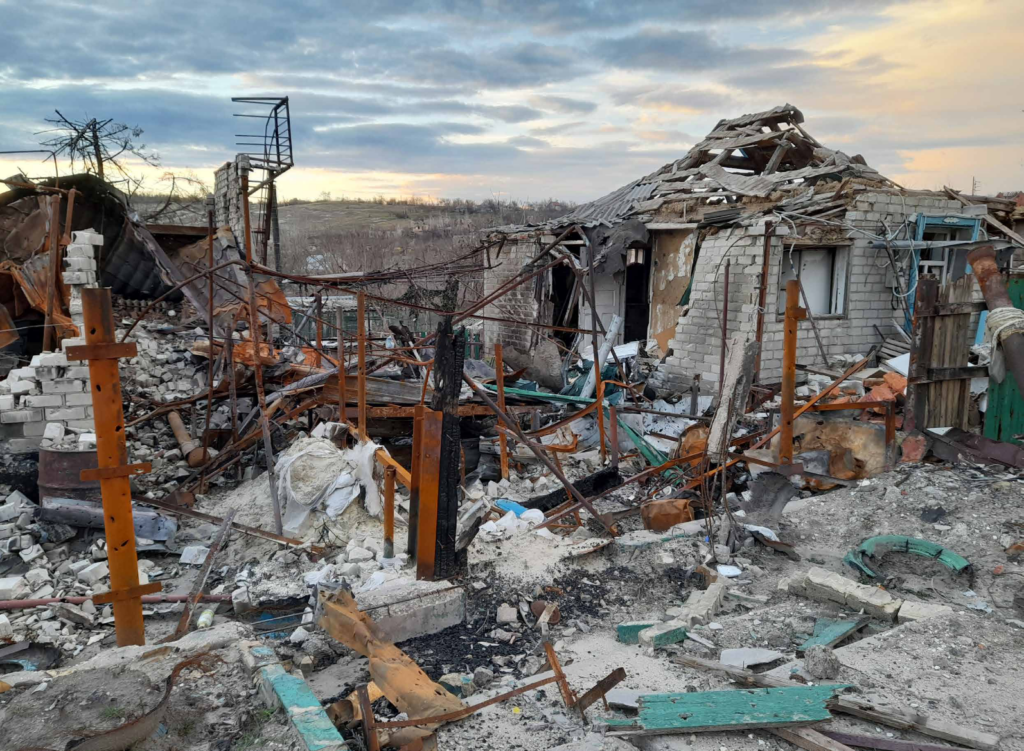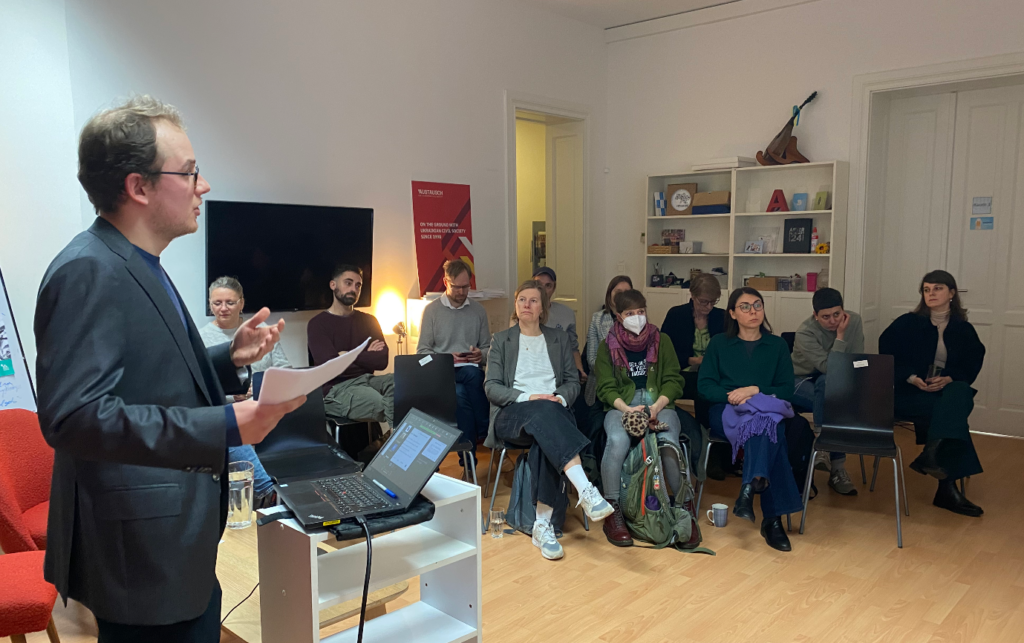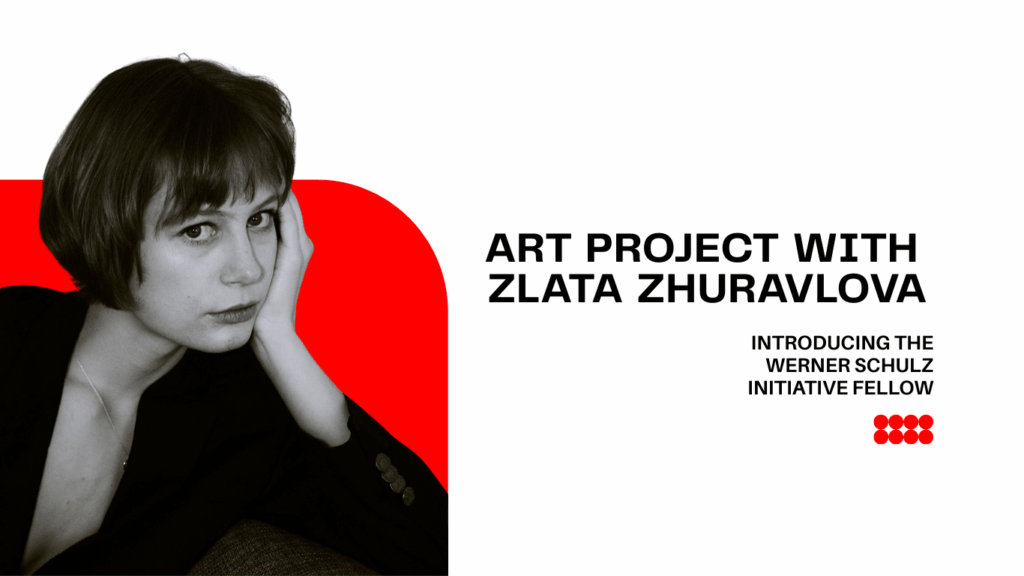From Fear to Resolve – Defending Ukraine and Securing the European House for the Future
Commentary on February 24, 2023
After a year of widespread Russian aggression, entire cities and regions in Ukraine lie in ruins, tens of thousands have died on both sides, around eleven million Ukrainians have fled the war, or worse, have been abducted to Russia. Civilians are injured, tortured, and murdered daily; infrastructure from hospitals to power plants is deliberately bombed; Ukrainians live in constant fear due to the rocket and drone terror of the invaders.
February 24, 2022, was a black day for all in Europe. However, it did not question our shared old goal but rather reaffirmed it: to build the common house of Europe with peace, democracy, equality for all, and openness to one another.
We admire the courageous efforts of Ukrainians against the Russian aggression and for a life of safety, freedom, independence, and democracy. It is their conscious decision not to be subjugated again by dictators from Moscow. Every day, our thoughts are with the people in Ukraine, with our partner organizations in Ivano-Frankivsk and Irpin, in Kramatorsk and Kyiv, in Rivne, Dnipro, and many other places. We explicitly want to thank our own Ukrainian and German colleagues who continue to work in the country under immensely difficult conditions: in our Civil Society Center ‘Drukarnia,’ they have ensured throughout this entire tough year that this important point of contact for support, provision, engagement, and collaboration remains available to people, especially from eastern and southern Ukraine, even though they themselves had to flee from Slovyansk to western Ukraine on February 24, 2022.
Since February 24, 2022, the Kremlin has already attempted to forcibly annex four more Ukrainian regions, similar to what happened in Crimea in 2014. Its propaganda continually conjures up new war fantasies: the use of tactical nuclear weapons, the invasion of Moldova or Estonia, preemptive air strikes against Paris or the ‘reconquest’ of East Germany. Understandably, such threats instill fear, even in Germany. But why do the people in Ukraine, in the Baltics, who are the most directly threatened, show the least fear? Because they know that fear must be overcome through resolve; otherwise, they become its hostages.
We are glad that even in German politics, the insight has prevailed that security is not possible with the leadership in Russia but rather necessary to protect against it. Anyone who still wants to consider a joint future – even if it’s one spanning decades – must take a stand against the regime in Russia. Because this regime is destroying its own country, its people, its constitution, security, and development. It is anti-Russian. So, it’s not enough to say that Russia must not win the war against Ukraine – it must lose it, also in its own interest. Those who negotiate with Putin and fulfill his imperial demands, even partially, are complicit in the aggression against Ukraine, in violation of international law, in all European countries – and in Russia. This accusation cannot be spared from the authors of open letters and other advocates of negotiations with the dictator. Their legitimate fear leads to unjustified expectations of submission.
Therefore, in this war that none of us wanted, we must not shirk our responsibility for its outcome. The financial, humanitarian, and even military support for Ukraine from German society and politics must not be measured solely by comparisons with the contributions of other countries. The measure is what Ukraine needs to win this war and thus regain its security, its right to inviolability, and its independent development. This requires forward-looking and quicker decisions. Those of us committed to peaceful coexistence throughout Europe must enforce this against those who continue to resort to violence every day. As terrible as it is, this necessitates the use of weapons as well as their adequate production and provision in Germany and Europe. The shortage of military equipment that Ukraine needs to win the war for peace must come to an end. Putin speculates that support for Ukraine will wane over time. Therefore, we must take more decisive measures for long-term support of Ukraine to dispel this illusion. At the same time, he, as well as his callous accomplices, must know that the crimes will not go unpunished.
In Germany, we must also dedicate ourselves more comprehensively and intensively to other countries, such as those in the Baltics, the Caucasus, and Central Asia, than we have done so far. Because, on the one hand, they – as evidenced by the failed Eastern Europe and Russia policy until 2022 – deserve equal attention. On the other hand, the revanchist vision of the Russian regime also threatens these neighbors. Therefore, an integral strategy is needed to ensure peace and freedom from this Russia, which will likely remain a dictatorship for many years to come.
Facing the war and mitigating its consequences is our collective responsibility. To contribute to this, we immediately launched our fundraising campaign ‘Ukraine Aid,’ provided humanitarian assistance and protective clothing, and supported refugees. We have contributed to documenting war crimes, informed throughout Europe via the CivilMplus NGO platform about the situation in the front-line regions and civil society, and explained the background of the war at schools in Berlin. The “4th Forum for a European Ukraine” organized jointly with our partners in November brought together key actors from civil society in Ukraine to discuss the war and reconstruction. In December, together with CISR e.V. and a diverse initiative group from Russian democratic NGOs, media, and initiatives, we organized the first congress of Russian anti-war initiatives in Berlin, which united nearly 300 participants from 170 initiatives, from 30 (exile) countries, and from Russia. And despite the war, we do not lose sight of the situation in other countries – that Armenia remains militarily threatened and Belarus continues to be pushed towards totalitarian rule, participation in war, and annexation to Russia. Our association was founded in 1992 as German-Russian Exchange to promote encounter and cooperation in a peaceful Europe after the end of the Cold War. With everything we do, we remain committed to this goal.
Since 2014, we have witnessed how all diplomacy failed in the face of Putin’s fanatically pursued goal of restoring the superpower status of the dissolved Soviet Union. In 2021, we were banned in Russia for our critical statements – which became more urgent with the growing repression affecting many of our associates directly. Today, an imperialistic and inhuman criminal regime with a cult of leadership, propaganda, and fear is steering society in Russia, which largely stands passively or willingly by. However, we should not overlook the courageous and internally free individuals who still exist in the country – the political prisoners and those who continue their civil society work more or less openly.
The people in Ukraine will need a lot of strength and resources for many years to cope with the war and reconstruction. They also have hopes and legitimate expectations of us. We owe them genuine interest, empathy, support, and partnership. This is an essential aspect of the EU accession perspective. For a European civil society!
Stefan Melle
Executive Director at Austausch e.V.




